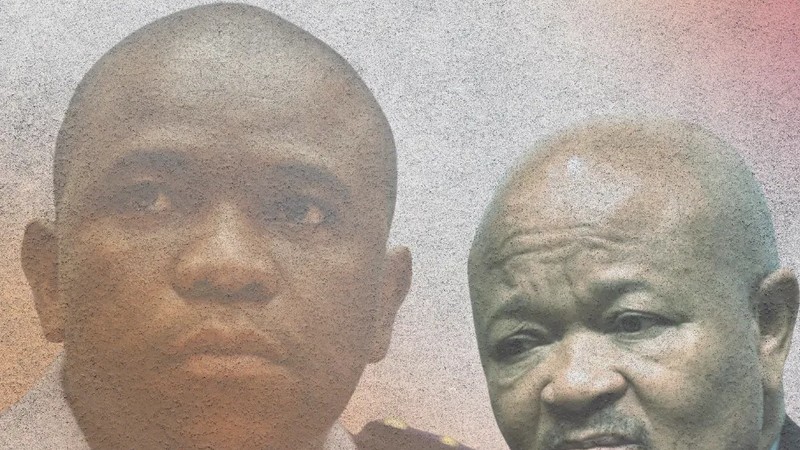During a joint parliamentary committee meeting, Members of Parliament(MPs) expressed serious concerns about the accuracy and transparency of the minutes and report related to the ongoing crisis.
Chairperson of Police Ian Cameron opened the session by inviting the secretaries of the committees to share the report on screen for discussion.
The Portfolio Committee on Police and the Portfolio Committee on Justice and Constitutional Development met jointly on Tuesday to consider a draft report addressing allegations made by KwaZulu-Natal Provincial Police Commissioner, Lieutenant General Nhlanhla Mkhwanazi.
The meeting aimed to determine the most appropriate way forward, with the committees expected to submit final recommendations to the National Assembly.
However, tension emerged early in the meeting as several MPs raised concerns about the accuracy and tone of the report and the accompanying minutes. Many alleged that key objections raised in earlier meetings were either omitted or misrepresented in the draft.
MK Party MP Mzwanele Manyi was among the first to voice dissatisfaction, stating, “The minutes must be a true record of what happened in the meeting. What was presented today is not a true record.
”There’s just too many gaps, and some of the phrasing feels like a message of the minutes.” He added that the report “couches things in a manner that seeks to maintain a veil of secrecy,” leaving key issues unclear.
EFF Eugene Mthethwa echoed these concerns, noting, “These are not true reflections of what we discussed. It paints a one-sided story,” and stressed the importance of accuracy given that minutes may be presented in a court of law.
MP Dr Khanyisile Litchfield-Tshabalala also highlighted omissions, mentioning, “There was opposition to the ad hoc committee and commission of enquiry, but that is not captured. The reasons for opposition are missing, which fails to give the spirit of the meeting.”
The procedural aspects of the meeting also came under scrutiny. Shabalala questioned changes in committee arrangements, asking, “Who changed the directive that only two committees are meeting now and not three? If it was changed, it should have been communicated to us. We found out that day in the meeting.”
She emphasised that such delays contribute to public distrust in both the police service and Parliament.
Moreover, Cameron reminded members that the agenda included the minutes for later discussion and encouraged members to submit feedback on the circulated minutes to ensure accuracy. He further clarified that the report’s primary aim was to offer an overview and recommendations rather than detail the entire crisis.
Members proceeded to discuss specific parts of the report. ANC MP Samuel Moela pointed out a grammatical error in section 2.4 and stressed the importance of focusing on recommendations and conclusions, as these contain the committee’s key messages to Parliament.
Concerns about terminology surfaced as Manyi requested clarification regarding the use of “special leave” versus “leave of absence” for Police Minister Mchunu and Lieutenant-General Shadrack Sibiya, urging the report to reflect the accurate term used in public records.
Manyi also raised substantive issues related to the Public Protector’s investigation of Minister Mchunu, calling for the inclusion of additional complaints submitted by the MK party concerning maladministration and abuse of authority. He suggested that these details be incorporated to provide a fuller picture of the matters under investigation.
The extent of parliamentary oversight over the judicial enquiry also generated debate. MP Steve Swart cautioned, “I am not sure whether we are competent to say that we will have oversight over terms of reference over a judicial enquiry.”
He warned that including such a stance could jeopardise the report’s acceptance by the House.
Manyi insisted Parliament has a responsibility to provide oversight. “We are not going to tell the executive what to do, but we have a duty to oversight,” he said.
Manyi agreed on the need for a legal opinion to clarify the committee’s role.
Despite the differing views, members stressed the importance of accountability. MK Party David Skhosana emphasised, “We cannot be spectators when we are sent to represent our people. The executive accounts to members of Parliament; they cannot hide behind the Judicial Commission of Enquiry.”
The meeting concluded with a consensus to document specific amendments and incorporate members’ feedback into the final report to be presented to the House.
Get your news on the go, click here to join the News WhatsApp channel.
Politics
